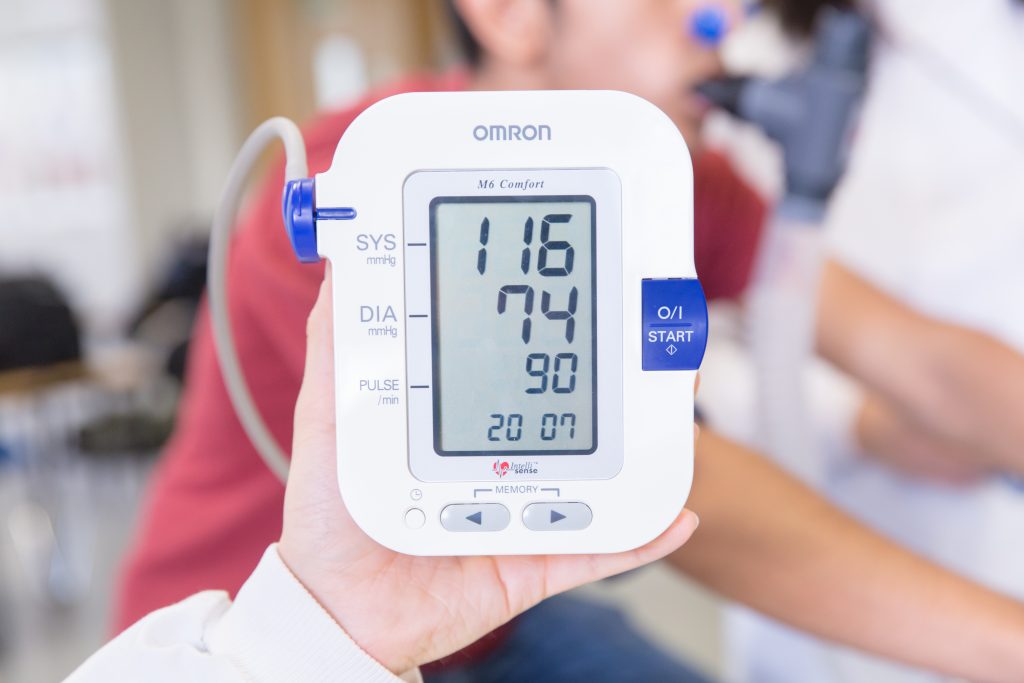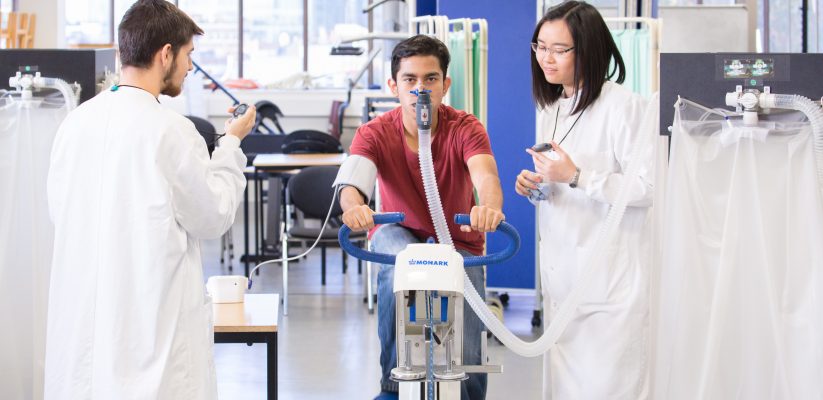Our Sport and Exercise Nutrition MSc is an incredible and unique programme. Whilst it is designed to produce people with the skills to work with elite, high performing individuals or teams, our graduates develop so much more than ‘just’ those skills with us. We focus on continuous learning, the transferable communication and behaviour change skills, the key professional networks, and the mindset to maintain the skills of an expert practitioner.
Tell us about yourself.
I’m originally from New Zealand, where I did a Sport and Exercise Sciences BSc at the University of Auckland. Like many academics, I spent my training years travelling the world and building up a wide range of eclectic skills. My MSc was in Experimental Medicine at Université Laval in Quebec, Canada, where I worked in a translational clinical group trying to understand muscle growth and loss in a disease called COPD. My PhD was here at the University of Westminster where I spent my time trying to understand muscle losses when oxygen supply was reduced, such as in mountaineering. When I finished my PhD, I was very lucky to be appointed to a Lecturers post, and since then I’ve risen to Senior Lecturer and now Reader in Human Physiology.
Throughout my university training, I was an ice hockey player and spent my 20’s trying to make the New Zealand squad. My days on the ice are long finished and these days when I’m not working, I can be often found on my road bike cycling up whichever hills I can find.

What makes the Sport and Exercise Nutrition MSc at Westminster stand out?
One of our unique aspects is the expertise of our academic team. We have a mix of research active academics who spend a lot of time in laboratories researching, working together with practitioner academics who both work with us and privately in industry or with elite athletes. We also bring in a wide range of experts from professional clubs and teams, which is key for our students to both gain insight into current industry practices and also build the key networks in this field.
One of the things that continuously surprises me is how much the ‘big’ teams and sporting codes value experts in basic science. Laboratory based, bench top work that isn’t done with sporting performance or health in mind, but that the insightful professional can rapidly translate from scientific discovery into a small performance advantage on pitch or running track. So, a unique aspect of our programme is the deep value we place on experiencing broad range of scientific disciplines outside ‘just’ focusing on applied nutrition itself.
Can you highlight some graduate successes from the Sport and Exercise Nutrition MSc?
Nutritionist practitioners who work with elite athletes do so in the shadows of their clients’ successes; this is a career pathway that values discretion. I can say that several of our graduates and practitioner academics are at top tier world-class events working with elite individuals and teams, including the Olympics, Commonwealth games, and international world championships for various sporting codes, but I wouldn’t name names. A growing industry is health food and supplement companies, and we also see graduates doing exciting work in this field.

As a professional and academic in the sports and performance nutrition industry, what have been some of your career highlights?
I’ve personally had the pleasure of working with Olympians and other professionals at the very top of their field, and internally geeking out whilst externally professionally holding a conversation with some incredible individuals is one unexpected career highlight. It really makes you stop and make sure what you say is 100% correct when someone is asking your opinion and it’s so key to their successes that your advice is good.
It sounds cliché, but I take great pride and joy in the successes of our alum. After they’ve walked across the stage at graduation, and we’ve toasted their successes and moved on to the next years cohort, it’s always incredible to see how individuals take the ideas and professional networks they’ve built and so confidently move on into amazing and occasionally unexpected careers.
Why did you choose Westminster?
I’ve been at Westminster for almost a decade professionally now, and it’s hard to imagine working anywhere else. Our institutional vision statement includes the phrase “Our people stand out as significant contributors to their communities – through their innovation, enterprise and problem-solving – seeking to make the world a more sustainable, healthier and better place”, and I genuinely believe that to be true. Westminster is an institution that actively aims to make the world a better place and empowers us to actively do so.

What advice would you give to aspiring nutrition professionals who want to pursue a career in performance nutrition?
Be open minded.
Opportunities will come up that may seem unaligned with your career goals but look again. Talks and seminars may seem wildly separated from your field of work, but one piece of information, or one network built can be invaluable later. Science will come up that seems to be too far from what you do, but the applications of new technologies or discoveries can be widely unexpected. A number of our applicants to this programme are so laser-focused on doing our degree and then working with one specific sporting code or team that they miss out on amazing opportunities along the way, that would ironically help them achieve what they are aiming for. Being open minded can prove an invaluable skill.
About Westminster
As one of the most diverse universities in the UK, we are a global university with London energy, with more than 19,000 students from 169 countries. To find out more about our Sport and Exercise Nutrition MSc programme, visit our website.
